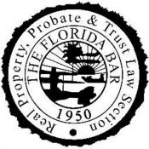Mediation Lawyers in Orlando, FL
What is Mediation?
What is mediation and when would you use a mediator? Mediation occurs when two disputing parties decide to use an impartial, non-plaintiff, non-defendant, trained legal mediator (a neutral party) to settle their legal differences outside of a courtroom.
Mediation is used when you try to resolve an issue using a neutral third party. The benefit to both sides is that a trained mediator works impartially to try to help the parties resolve legal and other problems. Legal issues can be settled amicably through decisions and options presented during the mediation process.
Bloodworth Law, PLLC, Of Counsel attorney, Philip Partridge, is a Supreme Court Certified Circuit and County Florida Mediator.
Let’s Talk About What Happened to You
Mediation for commercial businesses, small businesses, individuals, partners and shareholders.







